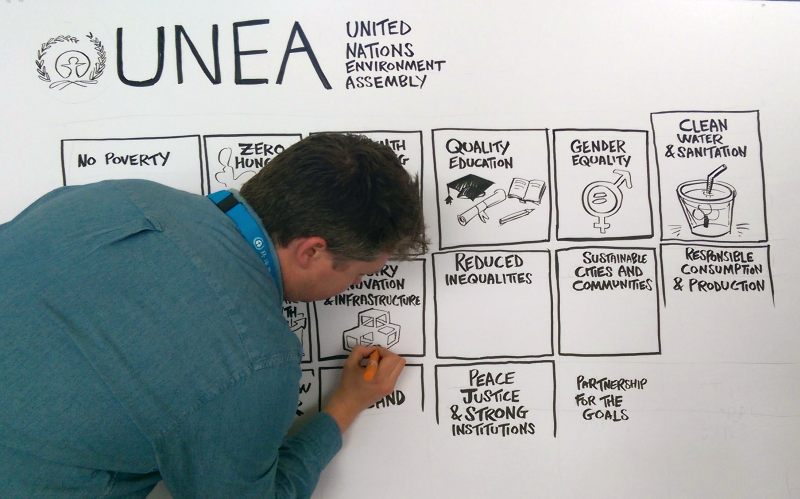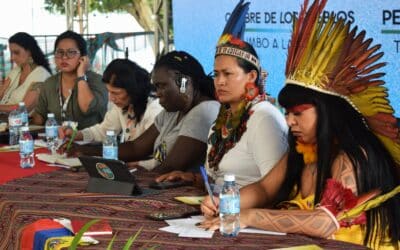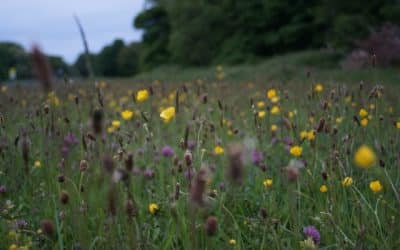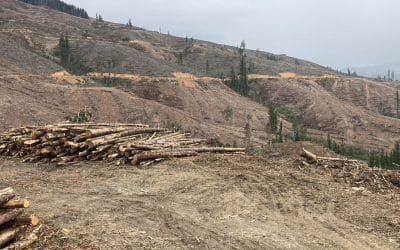by Isis Alvarez*
Although the second session of the UNEA-2 ended on 28 May 2016 at the UNEP Headquarters in Nairobi, key concerns emerging from it are still present in our everyday work on forest protection and biodiversity conservation. The UNEA is a good place to gain further understanding of not only ‘classic’ environmental problems but also ‘new’ and emerging ones. Experts from around the world come together to participate in the Assembly and raise awareness among delegates about their work and key issues through side events and workshops.
The theme for UNEA-2 was ‘Delivering on the Agenda 2030’. Initially, it was intended to be the more specific ‘Delivering the Environmental Dimension of Agenda 2030’. Likewise, several key Resolutions discussed during the Assembly, such as those on the 2030 Agenda and on climate change one, were watered down by the time of their adoption. All but 1 of the 26 Resolutions passed which created a hostile environment at the very end of the negotiations. For comprehensive coverage of the Assembly and policy outcomes, please visit: http://www.iisd.ca/unep/unea2/.
Overall, UNEA-2 was packed with events and activities. It was also the launch of the Global Gender and Environmental Outlook, UNEP’s first publication focusing on gender and the environment in the Global Environmental Outlook series. However, as an author, I observed that most panels taking place at UNEA-2 were male-dominated, as were most of the negotiators’ seats (see, for example: https://www.flickr.com/photos/unep/albums/72157669180378536. Thus, a more serious and coherent approach to gender in future sessions of the UNEA is needed.
In addition, during the closing of the Science & Policy Forum, held a few days prior to UNEA-2, the “Lifetime Achievement Award for Women in Science” award was given to Dr. Jennifer Thomson. A professor at the University of Cape Town, Thomson is well known for her work on genetically modified maize varieties; she is also an advisor to the biotech-funded Council for Biotechnology Information in the US and on the board of AfricaBio, an organization funded by Monsanto that lobbies for GMO crops in Africa.[1] This decision was condemned not just by participants from the Women’s Major Group, who held a silent action during the ceremony, but also by other UNEA participants who contended that it was irresponsible to give this award to someone promoting flawed technologies.
Around the world, peasants and indigenous peoples have been impacted negatively by the promotion of GMO seeds, which, among other things, have caused farmers to lose their yields and go bankrupt. According to the National Bureau of Crime Records, more than 284,000 Indian farmers have committed suicide since seed monopolies were established in India.[2] In some countries, governments have been directly responsible for forbidding native seed use and promoting GM seeds for harvest, including through subsidies. Such policies hasten the disappearance of native seeds, threatening food sovereignty while increasing hunger worldwide.[3] Recognition of GMO-promoting researchers arguably runs counter to the aims of the Sustainable Development Goals and thus the theme of UNEA-2.
Hence, it was evident that there is a need to synergize ‘preaching and action’ at these sort of events and to curb the increasing ‘schizophrenia’ between what such multilateral meetings aim to do and what they promote in reality. I am sure this is not the first time that such a clear discord has arisen, but this time, we were lucky that people in our team were well informed and able to recognize that something suspect was underway.
In hindsight, it is evident that UNEA outcomes have been overshadowed by other ongoing policy processes related to sustainable development, including the Addis Ababa Action Agenda (an outcome of the Third Financing for Development Conference), the Paris Agreement on climate change and the High Level Political Forum (aimed as the body responsible for SDG implementation). Even the latest UN Conference on Trade and Development (UNCTAD)[4] was recognized as having a central role in achieving the SDGs. However, UNEA-2 fell short of upholding the environmental pillar of sustainable development, which has been entrenched in international policy since at least the 1992 Rio Summit, if not the 1972 Stockholm Conference. As this is a recently established forum, we hope that future sessions will bring very much needed improvements.
Notes:
[1] http://powerbase.info/index.php/AfricaBio
[2] https://www.theguardian.com/sustainable-business/seed-freedom-hunger-malnutrition-biodiversity?CMP=twt_gu
[3] See, for example: https://www.theguardian.com/sustainable-business/seed-freedom-hunger-malnutrition-biodiversity?CMP=twt_gu
[4] http://sd.iisd.org/category/actors/un-programme-agency-or-fund/unctad/
*Isis Alvarez is the Gender Advisor and Campaigner of Global Forest Coalition (GFC)




